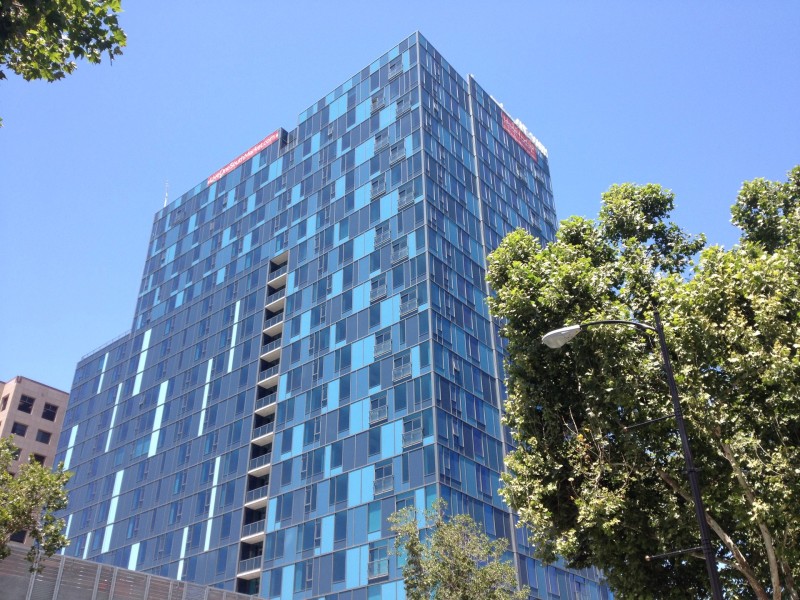"We were the largest city that was applying inclusionary housing citywide," explains San Jose’s interim Housing Director Jacky Morales-Ferrand. "In addition to that, we used our legislative powers to impose inclusionary on developers. What we said was that because affordable housing is such a priority of the highest order, cities should have the power to legislate this requirement."
The California Building Industry Association sued, calling the new ordinance an unconstitutional taking of property.
University of San Francisco law professor Tim Iglesias organized and co-wrote an amicus brief for the city of San Jose. "Most inclusionary ordinances give developers a number of different ways to comply with the requirement. So what the opponents have done is to seize on those alternative options and say, 'Hey look: This is an exaction,' which is kind of a term of art in law that makes the city have to justify that requirement in a different, stricter way."
A Santa Clara County judge invalidated San Jose's ordinance in 2012, referencing a case called San Remo Hotel L.P. v. City & County of San Francisco, but an appeals court rejected that reasoning a year later, and now the state Supreme Court has, too.
Court Cites "Epic Proportions" of Affording Housing Crisis
Noting the state's well-established scarcity of affordable housing, the ruling says: "These problems have become more severe and have reached what might be described as epic proportions in many of the state's localities." The court goes on to note: "The Court of Appeal held that the appropriate legal standard by which the validity of the ordinance is to be judged is the ordinary standard that past California decisions have uniformly applied."
The court wrote the conditions imposed by the San Jose ordinance did not constitute "exactions" that would bring the US or state constitutions into play. In addition, the court said enforcing those limits to address the city's affordable housing problem was "constitutionally legitimate."
In a statement, San Jose Mayor Sam Liccardo wrote: "I only regret that it required a Supreme Court ruling to uphold the ordinance, because we could have had the benefit of several years of implementation of this important tool."
Iglesias and Jacky Morales-Ferrand say the next step for cities and affordable housing advocates is to head to the state Legislature to allow for more expansive inclusionary zoning measures to be applied to rental housing as well as new units for sale.
So does the California Building Industry Association intend to appeal? Anthony Francois is a senior staff attorney at the Pacific Legal Foundation, which is representing the plaintiff. "All options are under consideration," he says.
"We think it's a very disappointing decision from the standpoint of property rights," Francois adds. "The ruling allows local governments to impose financial penalties on anyone who provides new housing, and unfortunately, we believe that can only deter efforts by builders to ease the state's housing shortage."
The case is CALIFORNIA BUILDING INDUSTRY ASSOCIATION v. CITY OF SAN JOSE et al. (AFFORDABLE HOUSING NETWORK OF SANTA CLARA COUNTY et al.) S212072 (H038563; Santa Clara County Superior Court – CV167289)
